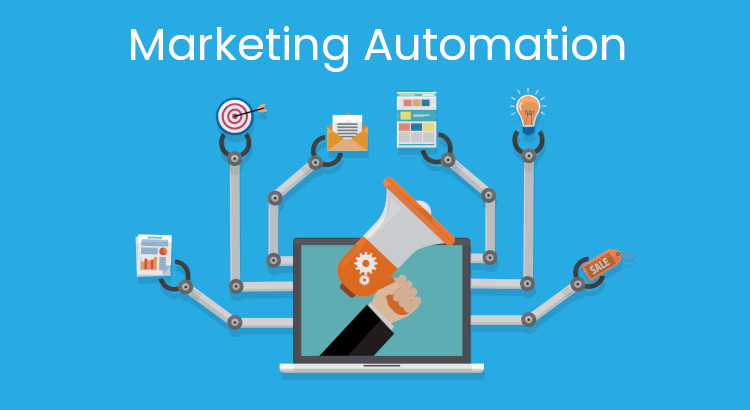Nowadays, businesses seek ways to streamline their marketing efforts. That is when marketing automation comes into play. It is a powerful solution that enhances efficiency, aligns marketing and sales, and boosts overall effectiveness. This article explores the definition, benefits, and strategies behind marketing automation to help businesses grow.
List of Contents
What is Marketing Automation?
Marketing automation refers to the use of technology to automate repetitive marketing tasks and processes. This includes email campaigns, social media posting, customer segmentation, and more.
By leveraging specialized software, businesses can streamline their marketing efforts, saving time and resources while achieving greater consistency and precision in their campaigns.
Many digital marketing companies utilize marketing automation tools to efficiently deliver their services.
How Does Marketing Automation Work?
Marketing automation platforms operate by using predefined rules and triggers to execute specific actions. These can range from sending personalized emails based on user behavior to updating customer profiles and scoring leads.
The system allows for a more targeted and efficient approach, ensuring that the right message reaches the right audience at the right time.
Benefits of Marketing Automation
1. Efficiency
Marketing automation streamlines tasks, saving time and resources, enabling teams to focus on strategic activities and creative endeavors.
2. Marketing and Sales Alignment
Collaborative workflows foster shared goals, enhancing communication, and driving unified efforts for better business outcomes.
3. Increase Conversion Rate
Tailoring content to the buyer’s journey through automated processes results in higher conversion rates and optimized customer interactions.
4. Accurate Reporting
Data-driven insights from marketing automation tools provide accurate and real-time reporting, aiding informed decision-making and campaign refinement.
5. Personalized Marketing Strategy
Automated segmentation and personalized content delivery ensure targeted messaging, resonating with individual customer needs and preferences.
6. Lead Scoring
Prioritizing leads based on behavior and engagement levels allows for focused attention on high-value prospects, optimizing the sales process.
7. Data Management
Marketing automation ensures clean and organized customer data, enhancing the reliability and effectiveness of marketing campaigns.
8. Scalable Processes
Automation allows businesses to adapt to growth seamlessly, ensuring processes can efficiently scale with the increasing demands of the business.
9. Lead Nurturing
Automated nurturing sequences build relationships with prospects over time, guiding them through the sales funnel and fostering brand loyalty.
Marketing Automation Strategies
1. Improve Team Communication
Utilize marketing automation tools to enhance collaboration between marketing and sales teams. Implement shared workflows and real-time updates for streamlined communication and improved efficiency.
2. Automate Social Media Updates
Schedule and automate social media posts using marketing automation platforms. Maintain a consistent online presence without manual intervention, ensuring timely and relevant content delivery.
3. Email Follow-ups After Lead Form Submission
Implement an automated email sequence to engage prospects promptly after they fill out a lead form. This ensures timely follow-ups and keeps your brand top-of-mind.
4. Segment Your Lists
Leverage marketing automation to segment your contact lists based on demographics, behaviors, or engagement levels. Tailor your marketing campaigns for more personalized and targeted communication.
5. Email Autoresponder Sequence with Recommendations
Set up automated email autoresponder sequences that not only acknowledge interactions but also provide additional recommendations based on user preferences and behavior.
6. Study and Emulate Top Performers
Analyze successful campaigns within your industry using marketing automation tools. Learn from top performers and adapt strategies that align with your brand and target audience.
7. Email Clients About New Products, Services
Utilize marketing automation to inform existing clients about new products or services. Deliver targeted emails that showcase the value of your offerings and encourage repeat business.
8. Abandoned Cart Reminders
Reduce cart abandonment rates by employing marketing automation to send timely reminders. Automated emails can encourage customers to complete their purchases and recover potential lost sales.
9. Remarket Ad Sequences Over Time
Implement remarketing ad sequences using marketing automation to stay visible to potential customers over an extended period. Consistent ad exposure reinforces brand awareness and encourages conversions.
10. Create a Content Library
Establish a centralized content library using marketing automation tools. Organize and categorize content for easy access, ensuring a seamless and efficient content creation and distribution process.
Marketing Automation Tools
Some of the best examples for marketing automation platforms are listed below.
1. HubSpot
HubSpot integrates marketing, sales, and service tools, offering email marketing, lead nurturing, social media management, and analytics features.
2. Marketo (by Adobe)
Adobe’s Marketo provides robust B2B marketing automation, including lead management, email marketing, and personalized customer experiences.
3. Pardot (by Salesforce)
Salesforce’s Pardot focuses on B2B marketing automation, offering lead scoring, email marketing, and seamless integration with Salesforce CRM.
4. Mailchimp
Initially known for email marketing, Mailchimp evolved into an all-in-one platform with automation, audience segmentation, and e-commerce tools.
5. ActiveCampaign
ActiveCampaign features user-friendly automation, email marketing, CRM, and sales automation, with advanced capabilities for customer segmentation.
6. SharpSpring
Designed for agencies, SharpSpring is a comprehensive marketing automation platform offering email marketing, CRM, social media management, and analytics features.
Marketing Automation Pricing
Pricing for marketing automation tools varies based on features, the size of the business, and the chosen plan. It’s essential to evaluate the specific requirements of your business and select a plan that aligns with your goals and budget.
Summary of Marketing Automation
Marketing automation is revolutionary for businesses aiming to enhance their marketing efforts. Embracing marketing automation is not just a trend; it’s a strategic necessity for sustained success in today’s competitive business environment.
Image by Freepik


